One of the questions we are most commonly asked is ‘should my business have a blog?’.
For small businesses, the answer is almost always “yes.” This Q&A article answers your questions on why you should have a blog and provides guidance on getting started.
Q. Blogging is time-consuming and I really don’t enjoy it. Will I have to do this forever?
Do I have to blog?
A. Larger businesses with greater brand awareness and higher search engine rankings may not include blogging in their marketing strategy. However, I would argue that regular blogging is crucial for small to medium-sized businesses.
Q. Why…?
Why should I have a blog?
A. Here are the reasons you should have a blog:
Having a blog on your website can warm people to your brand and create better customer relationships. If you are a jewellery maker, sharing the process of making a favourite item may make people feel connected to your products.

Also, giving people free information or advice can help position you as an authority in your field and create trust. For example, an accountancy firm providing 5 tips on filing end-of-year tax returns, will be seen as helpful and authoritative.
- Blog posts drive traffic to your website. Useful or interesting content gives your social media followers a reason to click through to your website. You should post links to each blog on all of your social channels.
- Blog posts can increase your ranking (visibility) in search engines. There are two key ways. Two primary elements of SEO (search engine optimisation) are keyword rankings and backlinks.
Keywords: Keywords are the terms that potential customers type into search engines to find your business. I’ll show you a few effective methods for keyword research later in this article. Using relevant keywords in your blog increases your visibility when those words are typed into search engines.
Backlinks: Search engines assess your website’s credibility partly based on the number of quality websites linking back to it. A solid backlink profile enhances your website’s visibility. Building a solid backlink profile involves convincing other relevant website owners to feature your blog on their sites. Warning: this is hard work and takes research and persistence.
Q. Oh no. Hard work. How often should I blog?
How often you should write blog posts
A. Search engines like updated content on your website and it’s good to drive potential customers there as much as you can with fresh ideas and information. Ideally, while you’re building your brand, you should post every week. I know, I know – who has time? Just think about why you’re doing it and do it as often as you can.
Q. OK, thanks. How do I know what to write about?
Topics for your blog
A. Focus on writing about topics closely related to your business. However, staying current and tapping into trending subjects can be beneficial. Explore Google Trends to identify trending topics.
Select your country and scroll to the bottom where you will see what is trending.
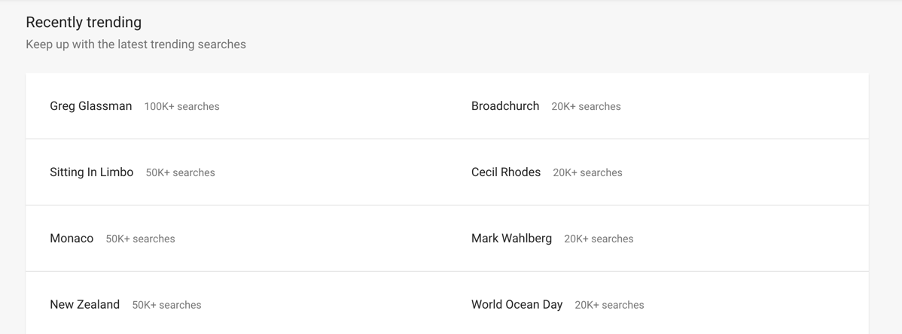
Or be more specific and type the topic that you have in mind into the search bar at the top. I have chosen ‘digital marketing’.
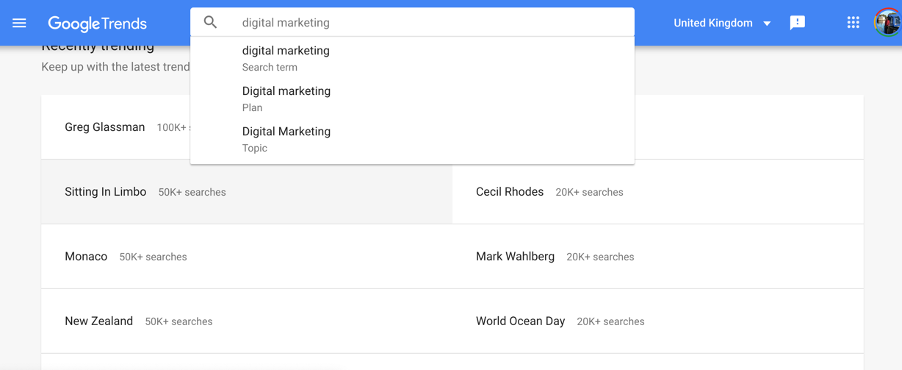
In the menu at the top, change “past 12 months” to “past 7 days”.
On the left are related topics and on the right are search terms that people use that are related to digital marketing and we can see how much they’ve gamed in popularity over the last 7 days.
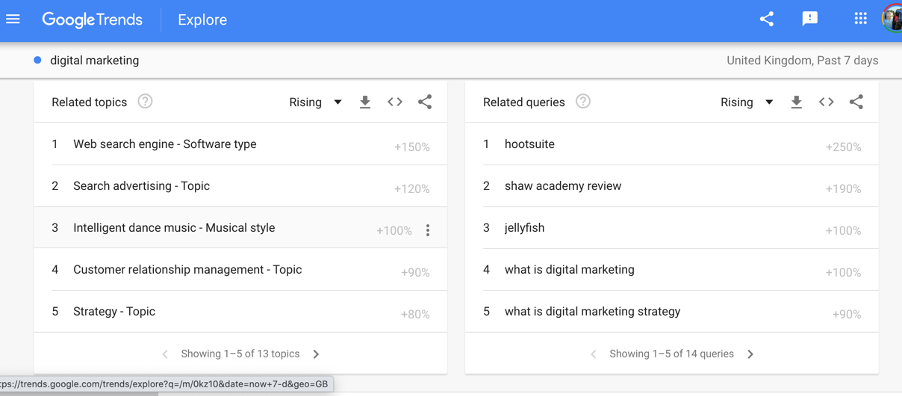
The results show that a commonly asked question is “what is digital marketing strategy”, so I know that a blog answering this query would be useful to many people.
Q. Got that, thanks. Didn’t you say you’d show me some tips for keyword research?
Keyword research tips for your blog
A. Yes I did. Firstly, the Google search bar is your friend. Enter your topic, and Google will provide you with related search terms that people are entering.
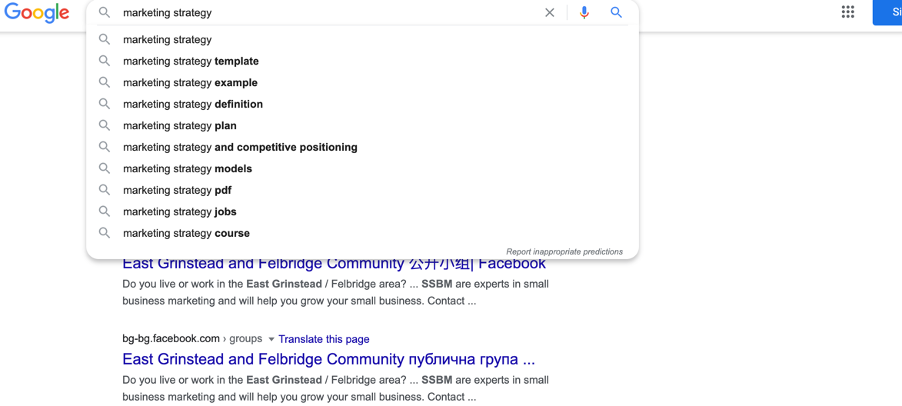
Secondly, Google Ads keyword planner is a great resource even if you never plan to advertise on Google. If you don’t already use Google Ads, it’s very simple to set up. You just need a Gmail account. Please note that Google Ads may ask you for credit card details. However, if you don’t set up any adverts, it cannot charge you.
You will see a window that looks something like this:
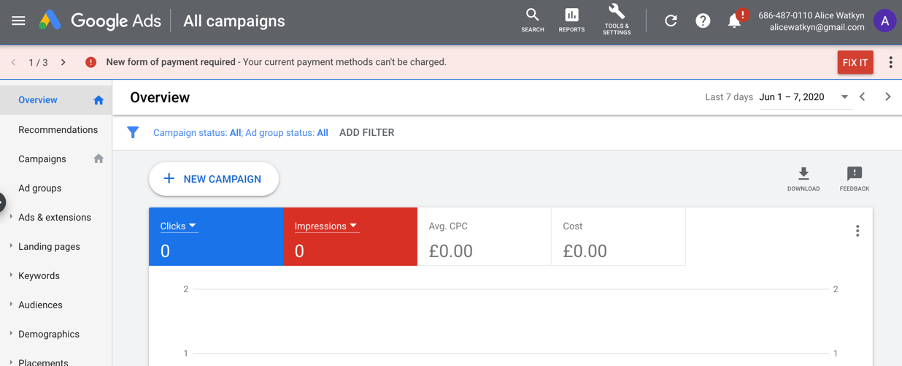
Click on “tools and settings” and select “planning” and “keyword planner”.
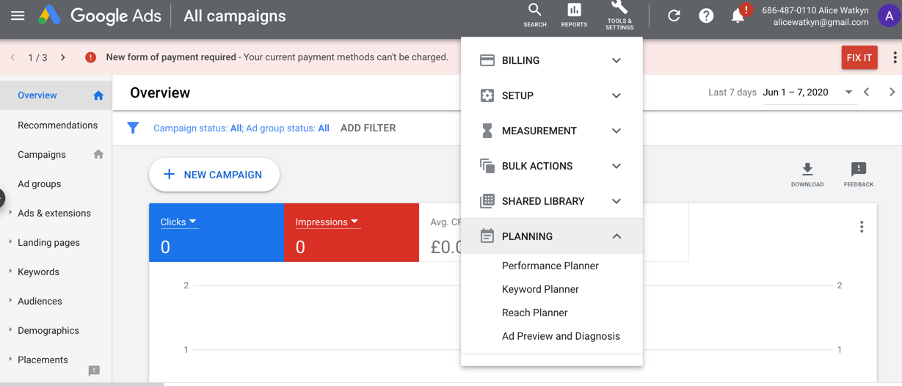
Select “discover new keywords” on the left, type in your topic and hit “get results”.
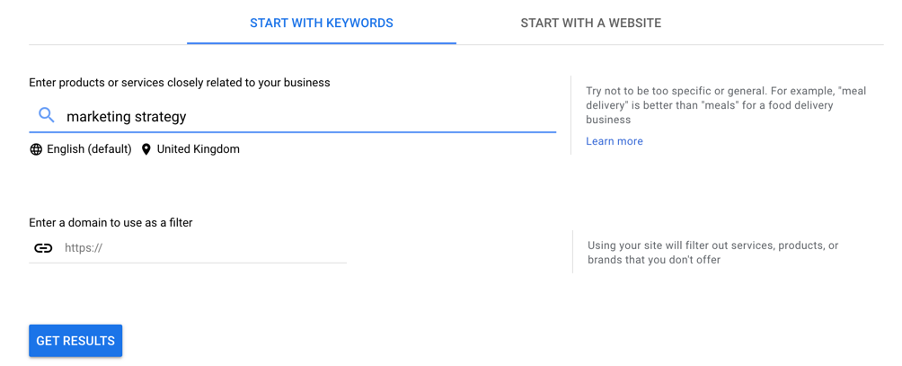
Hey presto! Click on “avg. monthly searches” to organise the results based on the frequency of searches each term receives monthly. The results also indicate the level of competition for these terms and the expected cost if you advertise using them. There is little point in trying to rank for terms that get very little search activity but be aware that the more searches a keyword has, the harder it may be to compete for. You can add terms by clicking on the suggestions along the top where it says “broaden your search”.
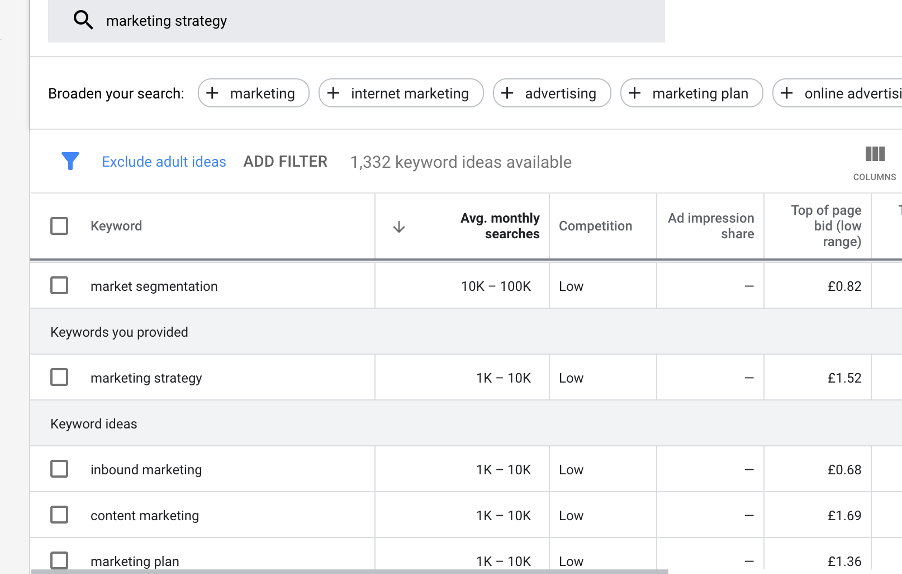
So there you have it. At first glance, this may seem like a lot of work but it is a simple process that becomes as natural as any process you may follow in your work day. The hard part is actually writing the blog!
Q. OK, I think I get it. Do you have any other tips?
A. Yes.
More blogging tips
- Your blog should contain links to other pages on your website.
- Include your keywords in headings.
- Don’t “stuff” keywords. A smattering of the key terms is useful but search engines are temperamental and get upset if they think you’re trying to trick them by using too many.
- For information blogs, consider “listicles”. Listicles, such as “5 organic ways to eliminate insects from your indoor plants,” are immensely popular. They’re efficient for busy readers, allowing them to quickly pick out the useful bits.
- Be useful. As a reader of health and fitness blogs, I’m attracted to articles with titles like “10 great ways to increase your energy”. If one of these “great ways” is to get more sleep, I feel cheated. Avoid stating the obvious; instead, focus on providing real value to your readers.
- Make sure your spelling and grammar is top notch.
- Write content for prospective customers/clients at both ends of the marketing funnel. Create useful content for those unfamiliar with your brand, offering tips and guides. For those already aware and potentially ready to buy, provide compelling content such as case studies, reviews and product comparisons.
Q. Thanks.
A. You’re very welcome.



Thank you for this! I had no idea about blogging, what the point is or even where to start. Following these few simple steps has really helped me get my head around it. Very much appreciated.
I’m really glad it was useful, Lindsay. Keep checking back for useful articles on marketing for small businesses.